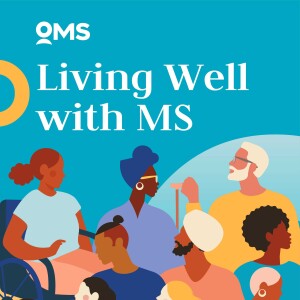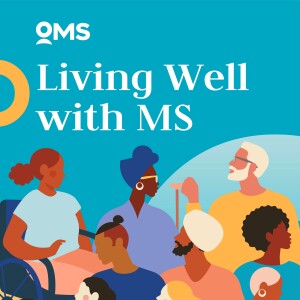
Living Well with Multiple Sclerosis
Health & Fitness:Fitness

Welcome to Living Well with MS, where we are pleased to welcome Dr David Bilstrom as our guest! Dr Bilstrom, MD is the Director of the International Autoimmune Institute & Bingham Memorial Center for Functional Medicine and an expert in treating autoimmune diseases. He talks to Geoff about what autoimmune diseases are, about Vitamin D and gives his tips for sticking with lifestyle change.
Watch this episode on YouTube here. Keep reading for the key episode takeaways.
Topics and Timestamps:00:59 Dr Bilstrom’s introduction and work in autoimmunity.
01:48 Reversing MS symptoms.
03:32 Infections and autoimmune diseases.
05:52 Vitamin D and MS.
10:45 Supplementing with butyrate.
12:23 Leaky gut and autoimmunity.
14:34 Oestrogen dominance and autoimmunity.
19:03 Adverse childhood events and autoimmunity.
23:40 Tips for sticking with lifestyle change.
Selected Key Takeaways:The risk of autoimmunity increases if a parent has an autoimmune disease.
02:04 “It's so easy if you get one autoimmune disease to get a second or third or fourth, but also, if a parent has an autoimmune disease, the child is at a higher risk of every autoimmune disease. For example, if a parent gets rheumatoid arthritis, that child is at a 5.4 times greater risk of getting type one diabetes. We want to educate people about what we know about why people get autoimmune diseases.”
Vitamin D and prevention of autoimmune diseases
06:38 “If a woman's vitamin D is above 50 during pregnancy, she's going to decrease the risk of her child ever getting MS by 50% … Vitamin D is uber important when it comes to immune system stuff, such as preventing MS in pregnancy. Cancer is the flip side of the same coin, that's [another] autoimmune disease. If a woman's vitamin D is above 60, she has automatically decreased her risk of ever getting breast cancer by 82%. Kids that take vitamin D 2000 IU in the first year of life will decrease the risk of ever getting type one diabetes by 90%.”
Epigenetics and autoimmunity
11:11 “We used to think our genes, our DNA in our cells, [that] whatever we got from our parents [and] grandparents we’re stuck with it. If a parent has MS, they’d think “well, I wish I could change some of the genes my child has.” Well, it turns out, it's not what genes you have, it’s which ones get turned on and turned off. So, it's epigenetics, the things that influence gene expression. There are a lot of bad genes that drive chronic disease, we’ve got to turn those guys off, as well as good genes that drive health, we’ve got to turn those guys on.”
Want to learn more about living a full and happy life with multiple sclerosis? Sign up to our newsletter to hear our latest tips.
More info and links:- Learn more about Dr Bilstrom’s work
- Take Dr Bilstrom’s free online course
- New to Overcoming MS? Visit our introductory page
- Connect with others following Overcoming MS on the Live Well Hub
- Visit the Overcoming MS website
- YouTube
Subscribe to this podcast and never miss an episode. Listen to our archive of Living Well with MS episodes here. If you like Living Well with MS, please leave a 5-star review.
Feel free to share your comments and suggestions for future guests and episode topics by emailing podcast@overcomingms.org.
Make sure you sign up to our newsletter to hear our latest tips and news about living a full and happy life with MS.
Support us:If you enjoy this podcast and want to support the ongoing work of Overcoming MS, we would really appreciate it if you could leave a donation here. Every donation, however small, helps our charity to share how to live well with MS with more people.
More Episodes
 2024-10-02
2024-10-02
 1.1k
1.1k
 2024-07-24
2024-07-24
 136
136
 2024-05-29
2024-05-29
 80
80
 2024-05-01
2024-05-01
 112
112
 2024-02-07
2024-02-07
 62
62
Create your
podcast in
minutes
- Full-featured podcast site
- Unlimited storage and bandwidth
- Comprehensive podcast stats
- Distribute to Apple Podcasts, Spotify, and more
- Make money with your podcast
It is Free
- Privacy Policy
- Cookie Policy
- Terms of Use
- Consent Preferences
- Copyright © 2015-2024 Podbean.com





